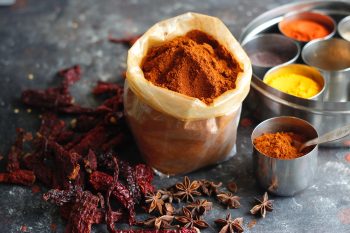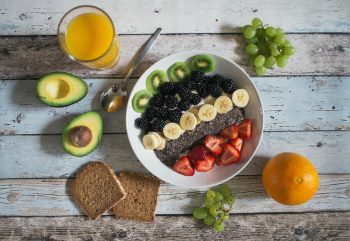According to the Nation Library of Medicine, every 3 in 5 people die from chronic inflammatory diseases like diabetes and cancer. This daunting statistic has been ringing through my head ever since my GP told me I need to get my inflammation levels down. How does one simply just bring down their inflammation levels, and how? What even is inflammation?
I turn to the only food medicine expert I trust, Michelle Mace. Let’s learn about what inflammation is, how it’s caused, and how we can maintain low inflammation levels in the body.
What is inflammation, Michelle?
Inflammation occurs when your body activates your immune system, sending out inflammatory cells to attack bacteria or heal damaged tissue in the body, which causes the body to become swollen, reddened, and hot.
What causes inflammation?
To be quite frank, the modern lifestyle does! Not moving your body enough, eating on-the-go, eating a diet filled with sugar, refined flour and caffeine, which the body struggles to process naturally. Stress that goes unmanaged and lack of rest can also contribute towards inflammation levels, as well as mould exposure.
Even underlying undetected systemic infections like tick bite fever or gum disease can cause inflammation, which sometimes go undiagnosed – our bodies have become so accustomed to inflammation, because there are triggers all around us, that we often don’t even realise we’re struggling with it.
You’re the food medicine expert! How can I eat to lower inflammation?
There are magical little group of plant compounds called polyphenols which tackle inflammation head on. One of these compounds specifically is called resveratrol and can be found in plants like turmeric, which is widely known for its healing anti-inflammatory properties, and blueberries, plums, apples and grapes.

Unsplash
If you’re concerned about your inflammation levels, I strongly recommend you eat at least one plant based meal a day, to get in all of those polyphenols. It’s a simple diet to follow, really. As long as you incorporate at least one luscious fruit or veg meal a day, with fruit and veg containing lots of polyphenols, then you’ll be well on your way to lowering inflammation.
Easy ways to incorporate veg or fruit into your diet is with dairy free smoothies, freshly squeezed juices, mono meals (consisting of just one food) of fruit, or veg, and lots of fun, colourful salads. If you just incorporate these into your diet, you will be harnessing the power of these amazing food medicine particles!

Unsplash
I would also advise a low carb (not no carb) diet. Eating healthy carbs like sweet potato, pumpkin, and butternut keeps your thyroid functioning, but it’s important to keep your carbs low, especially if you’re battling inflammation.
When it comes to protein, make sure you’re buying hormone free protein. Always look for free-range, organic meat.
Lastly, incorporate more whole food fats into your diet. Your body knows what to do with whole food fats in their original form. Opt for a whole avocado instead of using avocado oil, use actual olives instead of olive oil – which is extremely high in calories in its processed form anyway! Your body does better and functions better with whole food fats. Make sure you’re getting enough avocado, seeds, nuts, and olives!

Unsplash
Michelle Mace’s top 3 tips to lower inflammation fast
- Move your body! Science shows that two 30 minute exercise sessions – one in the morning, and one in the evening, creates an ‘after effect’ of lowering inflammation. Find a physical activity you love doing… tennis, dancing, walking in nature and be consistent.
- Make one meal a day plant heavy! A freshly squeezed juice or a dairy free smoothie or a fruit salad. Add at least one fresh green salad to your daily meals.
- Manage your stress! No stress in life is unrealistic. So prepare for it by finding a way to train your nervous system to rest and recharge. Do yoga, prayer, meditate, breathing. All excellent ways to nourish the adrenal glands.

Unsplash
Why should everyone consider an anti-inflammatory diet?
It’s preventative medicine at its best! Systemic chronic inflammation is the main cause of so many serious conditions like cancer, autoimmune diseases, arthritis, heart disease, gut issues, Alzheimer’s, ADD and depression.
In my practice, an anti-inflammatory diet forms a big part of an integrative approach to healing your body. An integrative approach is about getting to the root cause of inflammation and not just treating it with aspirin or NSAIDS (non steroidal anti inflammatories) which may help short term, but there are serious side effects!
It’s better to keep your body healthy and make sure it is getting all the food medicine compounds it needs in order to combat high inflammation levels. It’s also important to move your body, remember it’s 80% about the diet, and 20% about the exercise. You need to get both in to have a balanced approach.
Visit this website to find out more about food medicine expert Michelle Mace’s approach to healing through a healthy diet!
ALSO SEE: Lower your sugar intake with 4 healthy alternatives
Feature image: Unsplash
Written by Savanna Douglas for Woman&Home.

